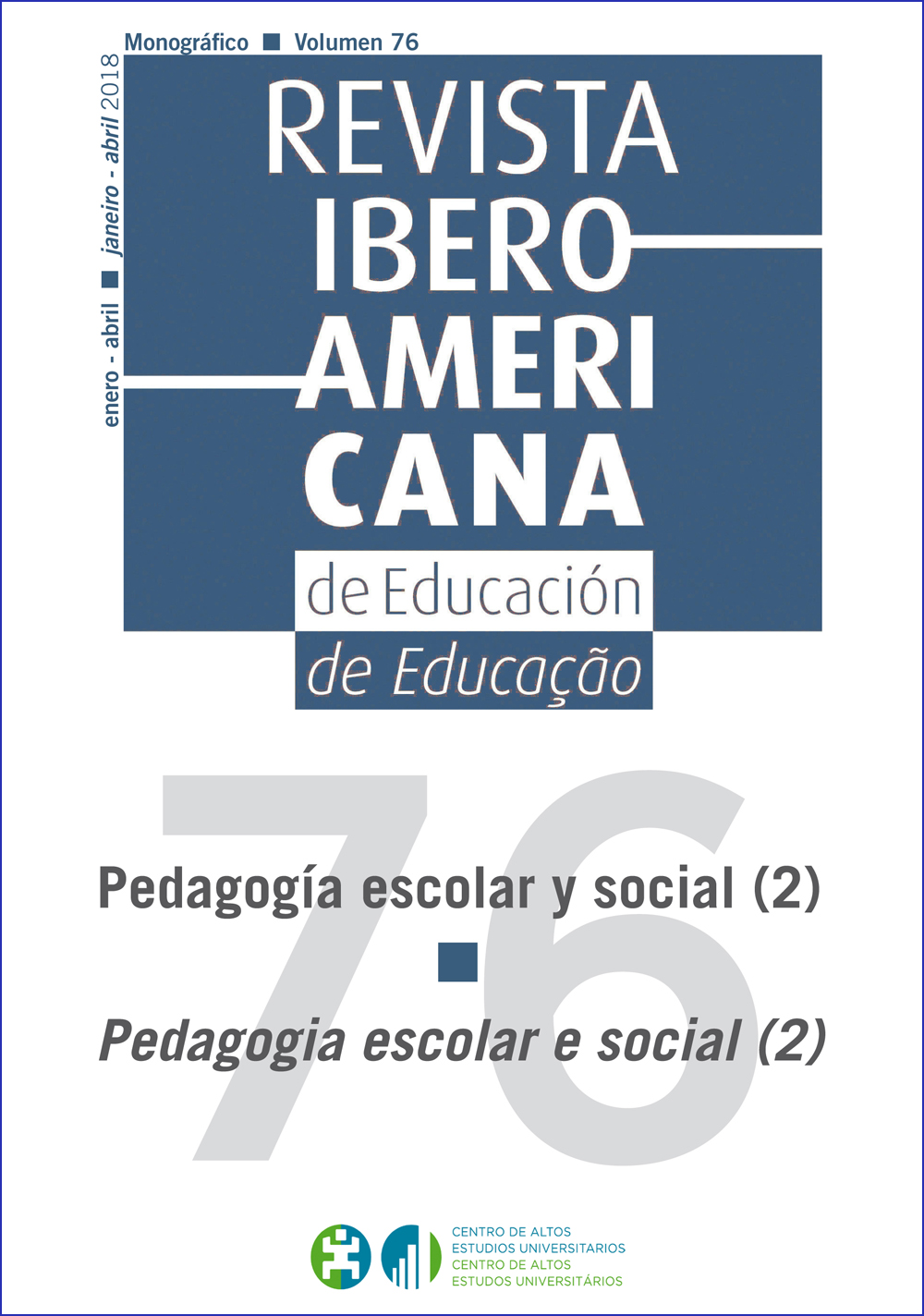Contributions of Paulo Freire’s to intercultural education. A case study in secondary education
DOI:
https://doi.org/10.35362/rie7602854Keywords:
intercultural education; linguistic diversity; dialogue; Paulo Freire; politicsAbstract
The general purpose of the research is to investigate and reflect on the contributions of Paulo Freire’s pedagogy to intercultural education and study its applicability in the educative system. The research that we have developed is of qualitative character and is focused on a case study. In a first level, we make an analysis of a selected portion of the written work of Freire and we establish the basic lines of what would be their intercultural sensitivity. On another level of analysis we conducted a study in the curriculum of the ESO in Asturias in its intercultural dimension. The contributions Paulo Freire have allowed us to identify challenges that the cultural diversity present in the Asturias curriculum. The results obtained in our study make it clear that, despite the appropriateness of the present moment, the need for the development of this proposal and the fact that the educational community is willing to incorporate; it would be necessary that determined prior conditions should exist. These conditions have to do fundamentally with aspects such as: organizational infrastructure in the school where all academic life it becomes intercultural; understand the educational and social meaning of secondary education, the need to launch a curriculum in which, cultural diversity has its own place, and all of this, within a context where the students enjoy the same educational opportunities in order to grow from a social, cultural and educational.
Downloads
References
Banks, J. A. (2015). Cultural diversity and education. Routledge.
Besalú, X. (2002). Diversidad cultural y educación. Madrid: Síntesis.
Colás, P. (1998). Análisis cualitativo de datos. En Buendía; L.; Colás, P. y Hernández Pina, F. Métodos de investigación en psicopedagogía. (pp. 288-310). Madrid: McGraw-Hill
Díez Gutiérrez, E.J. (2014). La práctica educativa intercultural en Secundaria. Revista de Educación, 363, 12-34.
Durkheim, E. (1975). Educación y Sociología. Barcelona: Ediciones Península.
Freire, P. (1969). Educación como práctica de la libertad. Madrid: Siglo XXI.
Freire, P. (1970). Pedagogía del oprimido. Madrid: Siglo XXI.
Freire, P. (1993). Pedagogía de la Esperanza: un reencuentro con la pedagogía del oprimido. Madrid: Siglo XXI.
Freire, P. (1994). La naturaleza política de la educación. Barcelona: Planeta De Agostini.
Freire, P. (1997). Pedagogía de la Autonomía. Saberes necesarios para la práctica educativa. Madrid: Siglo XXI.
Freire, P. (1997a). A la sombra de este árbol. Barcelona: El Roure Editorial
Freire, P. (2003). El grito manso. Madrid: Siglo XXI.
Freire, P. (2006). Pedagogía de la tolerancia. México: Centro de Cooperación Regional para la Educación de Adultos en América Latina y en el Caribe. CREFAL.
Freire, P. (2010). Pedagogía de la indignación. Madrid: Ediciones Morata S.L.
Freire, P. (2012). Cartas a quien pretende enseñar. Madrid: Biblioteca Nueva S.L.
García, J.M. (2003). Cuestionario para la evaluación del tratamiento de los procesos de interculturalidad en los centros educativos. En F. Luengo y H. Ramos (Coord.). Interculturalidad y Educación: Un nuevo reto para la sociedad democrática (pp. 37-44). Proyecto Atlántida.
García Castaño, F.J.; Pulido, R.A. y Montes, A. (1997). La educación multicultural y el concepto de cultura. Revista Iberoamericana de Educación, 13, 223-256. Recuperado de: https://rieoei.org/RIE/article/view/1143
Gimeno, J. (2005). La Educación Secundaria Obligatoria: Su sentido educativo y Social. Madrid: Morata.
Goetz, J.P. y LeCompte, M.D. (1988). Etnografía y diseño cualitativo en investigación educativa. Madrid: Morata.
González Riaño, X.A. (1994). Interferencia lingüística y escuela asturiana. Oviedo: Academia de la Llingua Asturiana.
Lynch, J. (1991). Education for citizenship in a multicultural society. Cassell.
Louzao, M. (2009). Diseño, desarrollo y evaluación de un proyecto de educación intercultural en un centro asturiano de Educación Primaria. Una perspectiva de la investigación en la acción y el estudio de caso. [Tesis Doctoral]. Universidad de Oviedo.
Louzao, M. y González Riaño, X.A. (2007). La integración social y educativa del alumnado inmigrante en Asturias. Un estudio de Caso. En: Los premios Nacionales de Investigación educativa y Tesis Doctorales 2005, (pp. 11-41). Madrid: CIDE.
Merino, J. y Muñoz Sedano, A. (1995). Eje de debate y propuestas de acción para una pedagogía intercultural. Revista de Educación, 307, 127-162. (Monográfico Educación Intercultural).
Pascual, J.; Mori, M.; González Riaño, X.A. y Atienza, J.L. (2003). Interculturalidad y diversidad lingüística: Estudio de las actitudes lingüísticas en Asturias y sus implicaciones didácticas. Oviedo: Ediciones KRK.
Pérez Gómez, A.I. (1994). Las funciones sociales de la escuela: de la reproducción a la construcción crítica del conocimiento y la experiencia. En Gimeno, J. y Pérez Gómez, A.I. Comprender y transformar la enseñanza, (pp.17-33). Madrid: Morata S.L
Pérez Tapias. J.A. (2010). Educar desde la interculturalidad. Exigencias curriculares para el diálogo entre culturas. En Gimeno, J. (Comp.). Saberes e incertidumbres sobre el Currículum, (pp. 149-161). Madrid: Morata S.L.
Sáez Alonso, R. (2006). La Educación Intercultural. Revista de Educación, 339, 859-881.
San Fabián, J.L. (2011). El papel de la organización escolar en el cambio educativo: la inercia de lo establecido. Revista de Educación, 356, 41-60.
Sleeter, C.E. y Grant, C.A. (1999). Making choices for multicultural education: Five approaches to race, class, and gender. New York, NY: Wiley.
Torres Santomé, X. (2008). Diversidad cultural y contenidos escolares. Revista de Educación, 345, 83-110.
Verdeja, M. (2015). Aportaciones de la pedagogía de Paulo Freire a la educación intercultural. Posibilidades de aplicación al sistema educativo en Asturias. [Tesis Doctoral]. Universidad de Oviedo.
How to Cite
Downloads
Published
Issue
Section
License
Any authors who publish with this journal accept the following terms:















